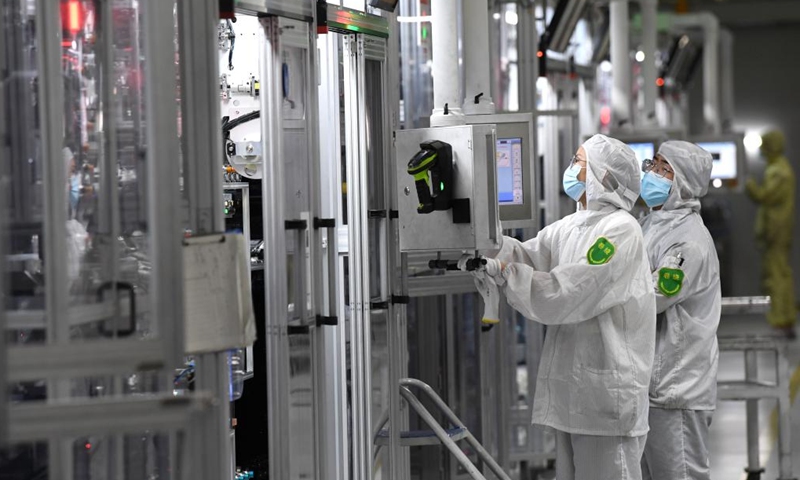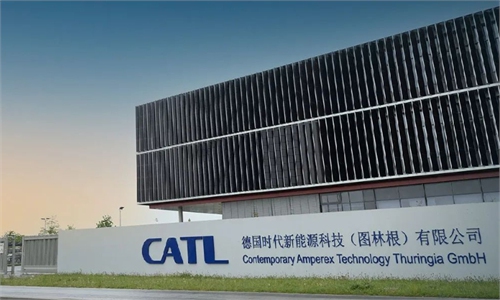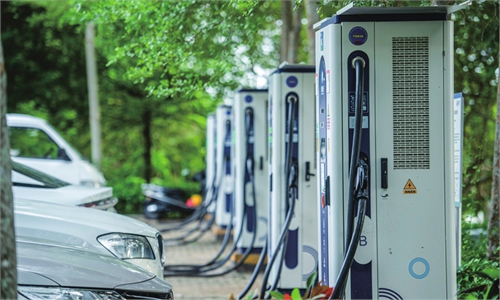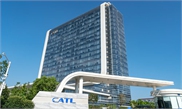Chinese battery makers flock to invest in Hungary amid pragmatic bilateral cooperation

Workers work on a power battery production line at a workshop of a battery production company in Hefei Economic and Technological Development Area in Hefei, east China's Anhui Province, July 29, 2022. Photo: Xinhua
Chinese battery producers have planned to increase investment in Hungary amid pragmatic cooperation between the two countries, with the latest example being EVE Power, which plans to build a plant in Debrecen, a city in eastern Hungary.
EVE Power Hungary, a wholly owned subsidiary of EVE Power, signed a land purchase agreement with a subsidiary of the Debrecen government for the factory. The 45-hectare facility will be used to make cylindrical power batteries, according to a statement released by EVE Power on Tuesday.
The plant will help all parties give full play to their respective resources and advantages, and it's also an important step for the battery giant to expand its global footprint and enhance its competitiveness, the company said.
With an investment of 400 billion forints ($1.18 billion), it will create more than 1,000 jobs, The Budapest Times reported on Tuesday, citing Hungarian Foreign Minister Peter Szijjarto.
Countries successfully attracting battery plant projects will receive a long-term guarantee of economic growth, Szijjarto said, noting that demand for batteries will increase tenfold by 2023 amid Europe's green transformation push.
EVE Power is not the first Chinese battery maker to choose Hungary as a production base in Europe. In 2022, CATL, which makes one-third of the world's electric vehicle (EV) batteries, invested 7.34 billion euros ($7.6 billion) to build a battery plant for carmakers in Hungary.
Debrecen is located at the heart of Europe, and with close proximity to some auto plants of its customers such as Mercedes-Benz, BMW, Stellantis and Volkswagen, CATL's Debrecen plant will enable it to better cope with the battery demands of the European market, improve its global production network development, and accelerate e-mobility and the energy transition in Europe, CATL said in a statement on its website on August 12, 2022.
Hungary has emerged as a frontrunner of Europe's EV industry. By 2030, Debrecen, a small city with population of 200,000, will be second only to Germany in battery production in Europe, according to media reports.
Central and Eastern European Countries (CEECs) have held a pragmatic attitude in cooperating with China and Chinese investments are welcomed, especially in Hungary, which has developed a friendly relationship with China, Feng Zhongping, director of the Institute of European Studies of Chinese Academy of Social Sciences, told the Global Times on Wednesday.
Chinese battery makers are eyeing not only the Hungarian market, but also the whole European market. By promoting green transformation, the EU bloc will become a large market for EV products, Feng noted.
Cooperation between China and CEECs is an important part of China-EU relations. Since 2012, China's trade with CEECs has grown at an average annual rate of 8.1 percent, China's Vice Minister of Commerce Li Fei told a press conference on Friday.
China's direct investment in CEECs rose by 148 percent year-on-year in the first quarter of this year. In 2022, China's investment in the entire EU bloc rose 21 percent year-on-year to $11.1 billion, with added investment focusing on new energy, automobiles, machinery and equipment, Li said
Hungary will be the guest of honor for the third China-CEEC Expo & International Consumer Goods Fair, which will be held in Ningbo, East China's Zhejiang Province, from May 16 to 20.
Global Times



